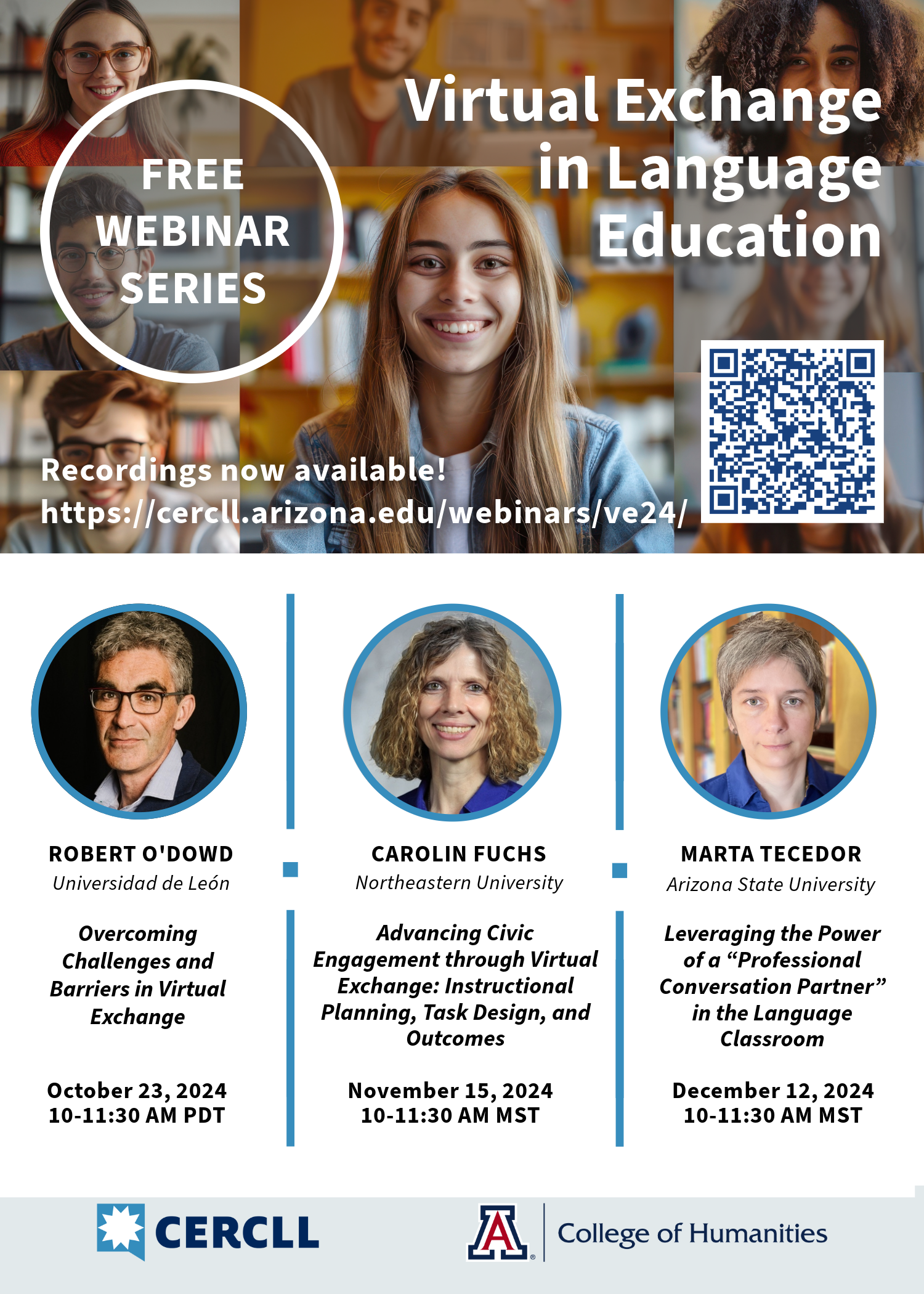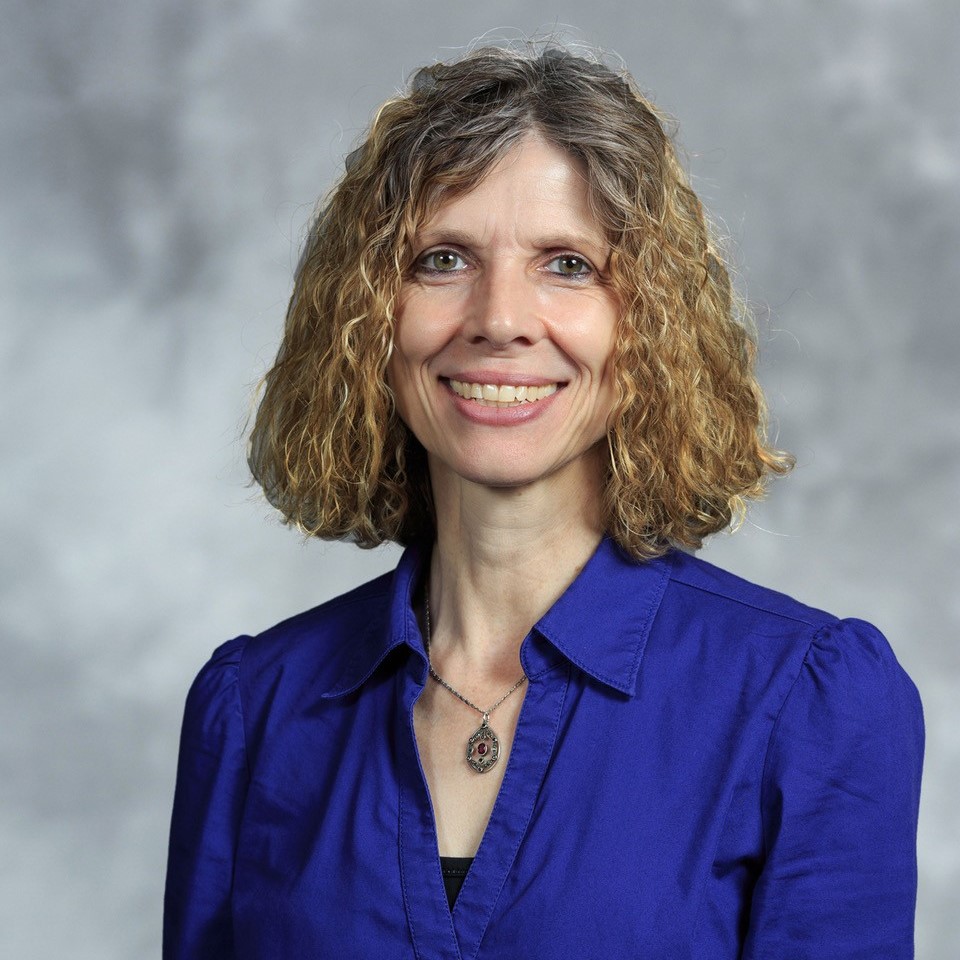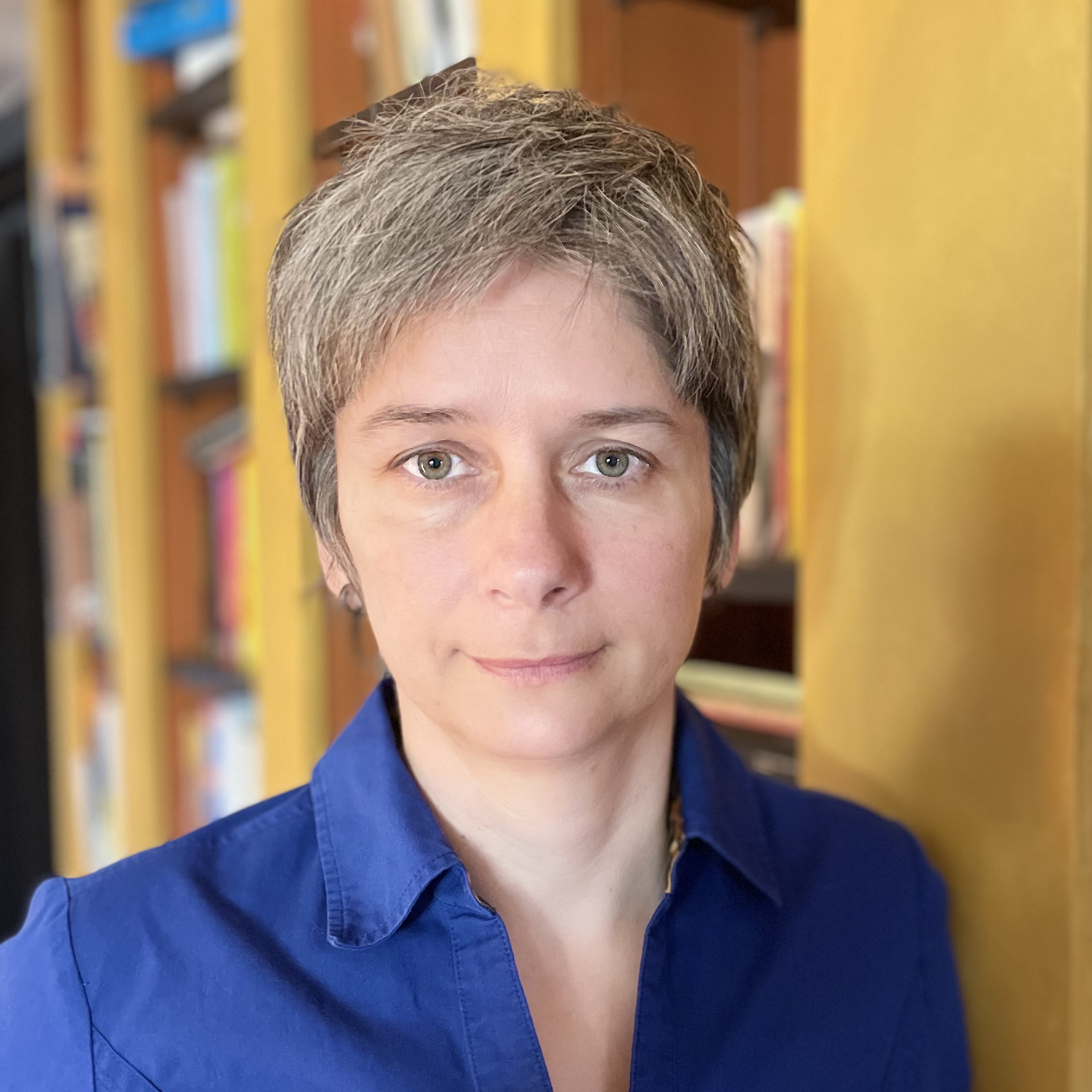
Virtual Exchange in Language Education
Often, opportunities to connect with peers abroad are limited to students who have the time and financial means to travel and stay for extended periods of time. Open Doors reports that less than 10% of U.S. undergraduates study abroad. As a low-cost or no-cost opportunity, virtual exchange has the potential to enable all students to connect and collaborate with peers from different cultural and linguistic backgrounds on projects that model the encounters they will have in the workforce. In the process, they can develop critical skills such as collaboration, communication, proficiency in another language, understanding of different perspectives, awareness of our common humanity, and civic and global engagement.
For these benefits to become a reality, however, careful instructional planning is essential, and this is what the presenters in this series will focus on, each coming at it from a different angle.
Click on the titles below to access the recordings, slides and resources for the webinars in this series.
You can also view all the recordings in our YouTube webinar playlist!

Robert O’Dowd
(Universidad de León, Spain)
Overcoming Challenges and Barriers in Virtual Exchange
In this webinar, Dr. O’Dowd:
- uses key publications from the literature to explore how VE and Blended Mobility can promote foreign language learning as well as global citizenship.
- outlines how VE and Blended Mobility can be integrated effectively into foreign language programmes.
- reflects on the challenges educators face as we try to use this activity to deal with issues of diversity and inclusion and to establish equitable relationships with partners from other countries.
Some of what attendees told us they found most beneficial about this webinar:
I can apply what I learned from the “Overcoming Challenges and Barriers in Virtual Exchange” webinar by enhancing student engagement in virtual settings, creating a more inclusive and multicultural environment, addressing technical challenges with new solutions, and adopting flexible teaching methods to better meet the diverse needs of students in online learning. This will help improve the overall online teaching experience and foster a more positive learning atmosphere

Carolin Fuchs
(Northeastern University)
In this webinar, Dr. Fuchs:
-
discuses the potential of implementing virtual exchange to facilitate civic engagement for outreach purposes across a foreign language program curriculum.
-
focuses on instructional planning for stakeholders, presenting task models, examples, and outcomes by referencing various projects.
-
draws on results from different student cohorts, and will illustrate how advancing civic engagement can prepare students for navigating and contributing to a globalized world, while promoting empathy and understanding across generations.
Some of what attendees told us they found most beneficial about this webinar:

Marta Tecedor
(Arizona State University)
In this webinar, Dr. Tecedor focuses on the defining characteristics of SPVEs and discuss how this more recent model can be incorporated in the world language curriculum to bolster both intercultural and linguistic competence.
Some of what attendees told us they found most beneficial about this webinar:

